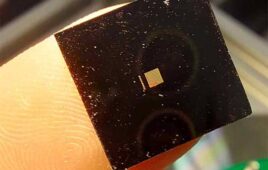
[Image from unsplash.com]
Doctors can tell their patients to make lifestyle changes to lower blood pressure, but compliance is low, according to the researchers.
“What if we could pinpoint the one health behavior that most impacts an indvidual’s blood pressure, and have them focus on that one goal, instead,” Sujit Dey, co-author on the study and director of the Center for Wireless Communications at UC San Diego, said in a press release.
The researchers on the study collected sleep, exercise and blood pressure data from eight patients over a 90-day period using a FitBit Charge HR and Omron Evolv wireless blood pressure monitor. They used machine learning and the data to develop an algorithm that could predict the user’s blood pressure and how their lifestyle affected it most.
Personalized data helps doctors and patients make more informed health suggestions, according to the researchers. In a study, the researchers found that a user’s blood pressure was mostly affected by the person’s sedentary lifestyle. Once they found that out, the person was able to change their habits and lower their average systolic blood pressure by 15.4% and their diastolic blood pressure by 14.2% within a week. Another person’s blood pressure was found to be affected by their sleep habits. When the person went to bed 58 minutes earlier than the week before, they experienced a 3.6% drop in systolic blood pressure and 6.6% decrease in average diastolic blood pressure.
“This research shows that using wireless wearables and other devices to collect and analyze personal data can help transition patients from reactive to continuous care,” Dey said. “Instead of saying ‘My blood pressure is high, therefore I’ll go to the doctor to get medicine,’ giving patients and doctors access to this type of system can allow them to manage their symptoms on a continuous basis.”
The researchers now hope to test the predictive model on larger sample sizes to give one-day-ahead prediction while studying the long-term effect of health behaviors on blood pressure.
The research was supported by Kaiser Permanente, UC San Diego Health, Samsung Digital Health and Teradata. It was conducted as part of the Center for Wireless Communications’ connection health program.





apparently the FDA is considering new legislation on #wearables, including cardio and BP devices. Apple claims that “deep hearth” is good enough for medical records, but what does the government say? The EU is also talking about changing medical approval clases for wearable devices, but this has to be ratified by over 30 states, so it might take a while? Du US insurance companie encourage wearables, f.eks. by reducing premiums? Does medicare and blue cross/shield pay for wearables and services?